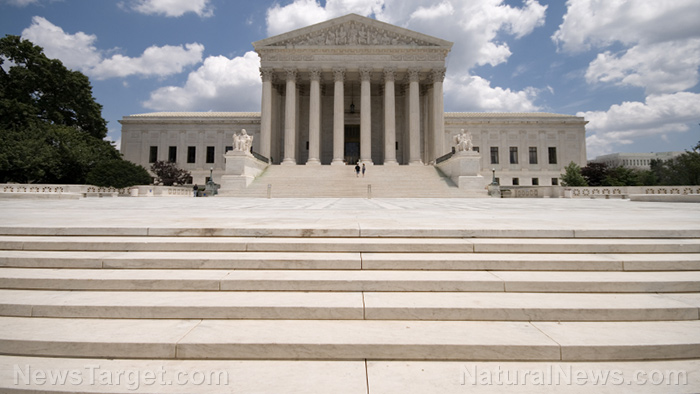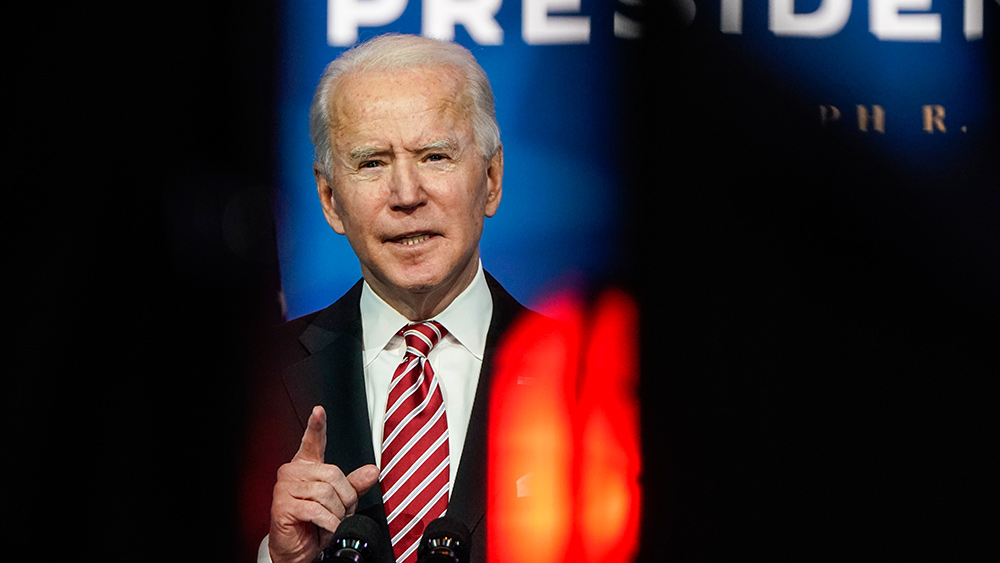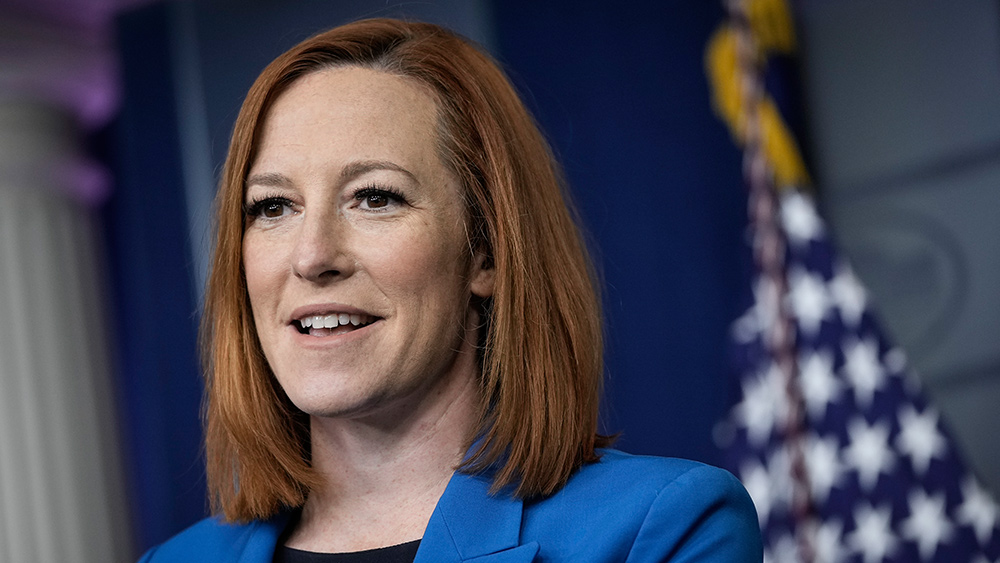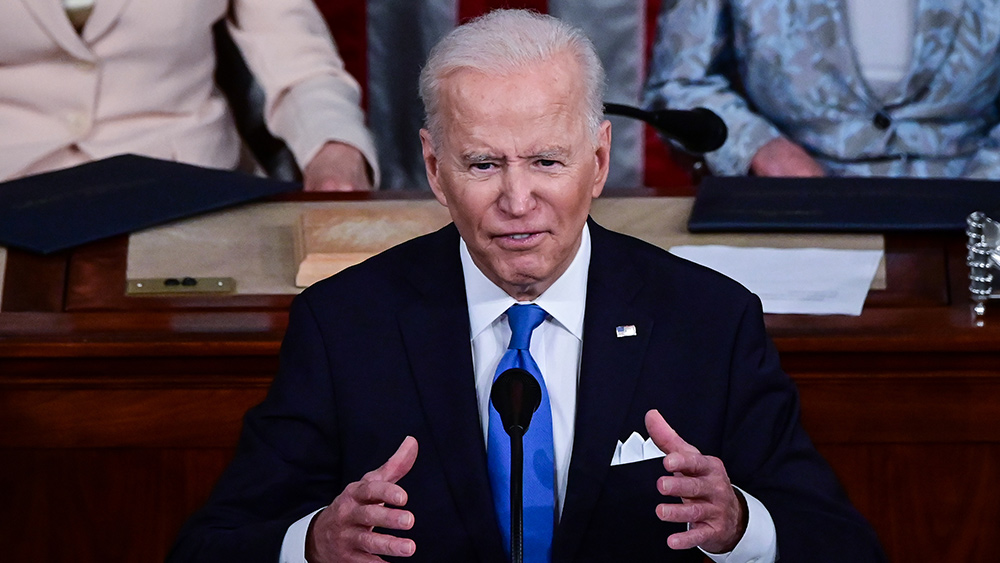Supreme Court strikes down CDC eviction moratorium
08/31/2021 / By Arsenio Toledo

The Supreme Court has blocked the Centers for Disease Control and Prevention’s (CDC) eviction moratorium. This will finally allow property owners to collect rent owed to them from their tenants, or to evict those unable to pay.
In June, the Supreme Court allowed the CDC to keep its eviction moratorium in place. This eviction ban was passed supposedly in response to the Wuhan coronavirus (COVID-19) pandemic. This previous moratorium was set to expire at the end of July. Justice Brett Kavanaugh said that if Congress wanted to extend this moratorium it needed Congressional authorization.
The necessary authorization never materialized. Instead, Biden illegally passed a revised moratorium that was set to expire on Oct. 3. This one only applied to counties with “substantial or high rates of community transmission” of COVID-19. This definition applies to more than 95 percent of the country, which makes it practically the same as the previous eviction ban.
This extension was challenged by a coalition of landlords and real estate associations from Georgia and Alabama. They argued that the CDC did not have the authority to pass such a moratorium.
In an unsigned opinion issued on Thursday, Aug. 26, the Supreme Court’s six conservative justices agreed with the petitioners. The justices argued that if the CDC or the federal government wanted to extend the eviction moratorium, they needed the authorization of Congress. (Related: CDC illegally extends eviction moratorium for another two months, despite U.S. Supreme Court ruling it has no such authority.)
“It would be one thing if Congress had specifically authorized the action that the CDC has taken. But that has not happened,” wrote the court in its opinion. “Instead, the CDC has imposed a nationwide moratorium on evictions in reliance on a decades-old statute that authorizes it to implement measures like fumigation and pest extermination. It strains credulity to believe that this statute grants the CDC the sweeping authority that it asserts.”
“If a federally imposed eviction moratorium is to continue, Congress must specifically authorize it,” added the court.
Liberal justices, Congressional Democrats, White House all disagree with Supreme Court decision
The Supreme Court’s three liberal justices all dissented from the majority opinion. Justice Stephen Breyer, the author of the dissenting opinion, said the court should not reject the eviction ban because it would supposedly “impact the health of millions.”
He added that the moratorium should have been upheld. “The public interest strongly favors respecting the CDC’s judgment at this moment, when over 90 percent of counties are experiencing high transmission rates.”
Citing the CDC, Breyer claimed that a surge in evictions following the end of the moratorium would lead to more COVID-19 infections.
White House Press Secretary Jen Psaki said the Biden administration was disappointed in the Supreme Court’s decision. She further claimed that the CDC’s eviction moratoriums were saving lives.
“As a result of this ruling, families will face the painful impact of evictions, and communities across the country will face greater risk of exposure to COVID-19,” said Psaki in a statement the night after the Supreme Court released its ruling.
First-term socialist Democrat Rep. Cori Bush of Missouri tried to claim that the Supreme Court’s decision was both racist and sexist. “We already know who is going to bear the brunt of this disastrous decision – Black and Brown communities, and especially Black women.”
The Supreme Court’s decision is the second blow to the Biden administration’s policies in just one week. On Tuesday, Aug. 24, the justices left in force a ruling requiring the federal government to reinstate former President Donald Trump’s “remain in Mexico” refugee policy. This policy required asylum seekers to wait in Mexico while the U.S. processed their cases.
Learn more about the illegal actions and recommendations from the CDC by reading the latest articles at CDC.news.
Sources include:
Tagged Under: Biden, CDC, Centers for Disease Control and Prevention, congress, coronavirus, covid-19, eviction ban, eviction moratorium, government, illegal, Supreme Court
RECENT NEWS & ARTICLES
COPYRIGHT © 2018 GOVERNMENTDEBT.NEWS
All content posted on this site is protected under Free Speech. GovernmentDebt.news is not responsible for content written by contributing authors. The information on this site is provided for educational and entertainment purposes only. It is not intended as a substitute for professional advice of any kind. GovernmentDebt.news assumes no responsibility for the use or misuse of this material. All trademarks, registered trademarks and service marks mentioned on this site are the property of their respective owners.




















